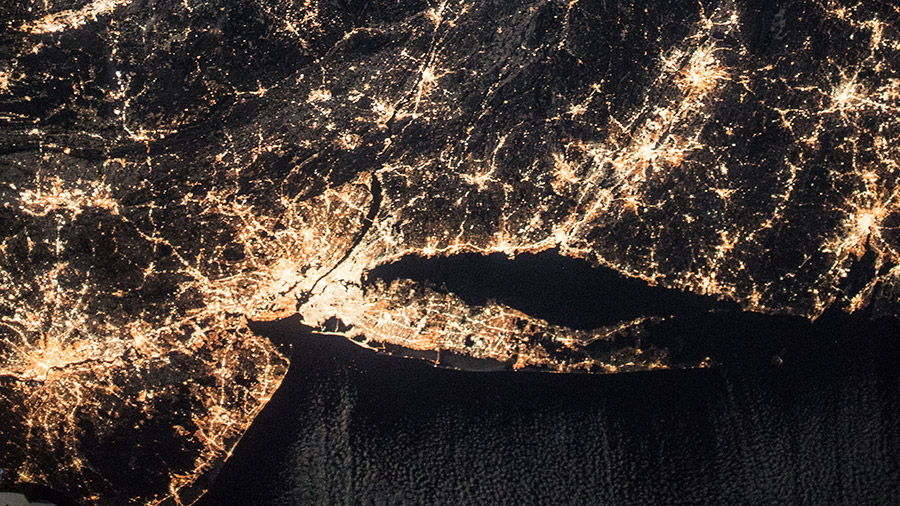
The Expedition 54 crew is starting the New Year studying how humans adapt to living in space for months and years at a time. NASA and its international partners are also learning how to support crews on longer missions with less help from the ground.
The astronauts and cosmonauts on the International Space Station orbit Earth 16 times a day affecting their circadian rhythms, or biological clocks. Japanese astronaut Norishige Kanai is helping doctors understand how being away from the normal 24-hour sunrise-sunset cycle impacts the human body. He strapped on sensors today that will measure his body composition and temperature for 36 hours.
NASA astronaut Mark Vande Hei is helping engineers design closed-loop systems keeping crews self-sufficient on longer missions beyond low-Earth orbit. He swapped experimental containers in the Biolab Incubator containing bacteria cultures that could be used for carbon dioxide removal and oxygen production.
Crews also need to be prepared for bone injuries or dental work that may be necessary during a space mission. The Synthetic Bone experiment, that Flight Engineer Joe Acaba worked on today with Kanai, is testing how a synthetic material integrates with bone cells to address bone fractures and bone loss in space and on Earth.

I especially like the experiment of converting CO2 to Oxygen. Thank you and I hope all these expiriments are completely successful and all of NASA stays safe and healthy.
I hope to travel to mars too one day. Though I am not at all conversant with any technology but to explore, I would love. It would be the only dream to come true of all my dreams. I hope I get a chance in the future.
It’s also something I’ve dream about travelling and living on Mars.. I love to grow plants/trees all mother Earth can provide…Ive also believe Ill see it happening, but unsure if I ll beable to have the chance?NASA is Beyound amazing.. I believe they are going to provide this option for man kind.. I know a suit was developed to wear on Mars..
I know I’m very uneducated regarding Space Science, so this is my next question..
Anytime in those 16 times in 24hr period The Space station travels around Earth.. Would I beable to see the shape of International Space Station … I live on East Coast of Australia..
Would it be possible, to see the lights and actually shape of Station …With just your eyes??
Thank you NASA, thank you to all..May 2018 bring good fortune, Success.
Stay safe..
#AussieBBBum
Congratulations! The idea to present the projects and the reports about the results is a great one! It is a way to expand the NASA community to all over the world. I am part of an European project and we discussed your approach as a good practice example. The medical research is the most touching field for citizens to understand the utility of the advanced research.
I understand the limited resources and competing experiments, but some of these highlighted experiments seem to lack scientific rigor in terms of sample size and duration of study. Am I wrong?
I’ve also read about the twin astronaut, whose brother on Earth is also being studied. Sample size of one. And numerous confounding factors. How are we to draw any conclusions from such a study?
You can learn more about the science and the research methods taking place on the International Space Station here…
https://www.nasa.gov/mission_pages/station/research/index.html
https://www.nasa.gov/mission_pages/station/research/ops/research_information.html
https://www.nasa.gov/mission_pages/station/research/benefits/index.html
https://www.nasa.gov/mission_pages/station/research/experiments/explorer/
https://www.nasa.gov/mission_pages/station/research/facilities_category/index.html
https://www.nasa.gov/mission_pages/station/research/results_category
I think you guys are really amazing i maybe some day there will more stations like the iss for everyone to visit…
I am a big fan of NASA. I follow NASA everyday on the app. I love the experiments you do at the ISS. I find the Universe fascinated.
Pick me NASA pick me. I would really love to go to mars
May God bless each of you. Thank you for your sacrifice and research.
With gratitude,
David
Topeka, KS